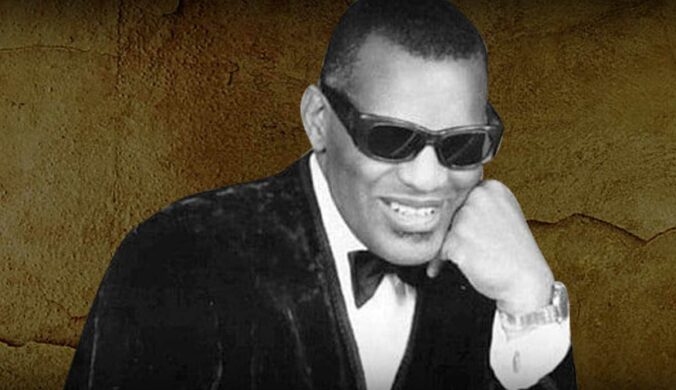Marvin Gaye was born on April 2, 1939. He found his musical talent at the age of four while attending church and at the age of 11, after winning over audiences with a performance in a school play, he was encouraged to pursue a professional music career. Prior to signing with Motown, he performed with the Moonglows as well. Before working as his producer on the protest album” What’s Going On,” he recorded songs by Smokey Robinson (1971). Gaye produced several singles on his later albums, including ‘Let’s Get It On,’ ‘Sexual Healing,’ and ‘I Heard it Through the Grapevine,’ which helped him refine his production approach. He was slain in a domestic altercation with his father in 1984. Celebrate his special day with us.
Fast Facts
Full Name:
Marvin Pentz Gay, Jr.
Nickname:
The Prince of Soul
Birth date:
April 2, 1939
Death date:
April 1, 1984 (age 44)
Zodiac Sign:
Aries
Height:
6' 0"
Net Worth:
$9 million
Background
Marvin Pentz Gay, Jr., who spelled his surname Gaye, was born in Washington, D.C., on April 2, 1939. Gaye was raised under the strict control of his father, Reverend Marvin Gay Sr., the minister at a local church, against a bleak backdrop of widespread violence in his neighborhood.
Throughout his early years, Gaye frequently turned to music for solace, learning the piano and drums at a young age. He had only performed at church revivals up until high school, but soon he discovered a love for R&B that would lay the groundwork for his career. Gaye quickly won over the group’s founder, Harvey Fuqua, with his incredible singing range, encompassing three vocal genres. Gaye and Fuqua were both quickly signed to Gordy’s famed Motown Records after catching the eye of Detroit music mogul Berry Gordy Jr.
As a drummer for Motown icons like Stevie Wonder, The Marvelettes, Martha, and the Vandellas in his early years at the label, Gaye saw the success of the time. With his solo hit single ‘Hitch Hike’ from 1962, he would later become the first artist to enter the Top 40. After ‘Hitch Hike,’ Gaye continued to release solo dance hits and love duets with successful artists like Diana Ross and Mary Wells. Some of his biggest songs during that time included ‘Can I Get a Witness’ and ‘I Heard it Through the Grapevine.’ With the latter in the 1960s, he became Motown’s best-selling record.
As violence and political unrest over the Vietnam War increased in 1970, Gaye was inspired to write the timeless song ‘What’s Going On.’ Despite differences with Motown regarding the song’s artistic direction, the record was released in 1971 and immediately became a hit. Due to the album’s success, Gaye felt pressured to take even greater artistic and political risks. When the “What’s Going On” album was released in the spring of 1971, it helped Gaye maintain his Motown fan base while also expanding it.
Later, he would leave the stable, but didn’t stop making hits. He put out “Got to Give It Up,” which was his final album for Motown Records, and one of the greatest love songs of all time, ‘Let’s Get It On,’ which went on to become his second number one Billboard success. In 1982, Gaye signed a recording contract with C.B.S.’s Columbia Records and started work on his final album, “Midnight Love,” after leaving Motown. The R.&.B. star’s comeback hit lead song from that album, “Sexual Healing,” brought him his first two Grammy Awards as well as an American Music Award for ‘Favorite Soul Single.’
Gaye was shot and killed by his father, Marvin Gay Sr., on April 1, 1984, the eve of his 45th birthday, at their home in Hancock Park, Los Angeles, following an argument. Gay Sr. later pled no guilty to voluntary homicide and was sentenced to six years suspended and five years probation. Gaye received numerous awards and honors after his death, including the Grammy Lifetime Achievement Award and inductions into the Rhythm and Blues Music Hall of Fame, the Songwriters Hall of Fame, and the Rock and Roll Hall of Fame.
Career timeline
Gaye becomes a drummer for Wonder and a co-writer for The Marvelettes.
Gaye enters the top 40 for the first time with his solo single ‘Hitch Hike.’
Gaye and Tammi Terrell wow the globe with their soaring duet performances of songs like ‘If I Could Build My Whole World Around You’ and ‘Ain't No Mountain High Enough.’
Rising violence and political unrest over the Vietnam War inspire Gaye to write the timeless ballad ‘What's Going On.’
Gaye moves to Los Angeles and meets Hunter, his second wife; inspired by the changes in his life, he releases one of the most revered love anthems of all time, ‘Let's Get It On.’
Gaye releases his last album for Motown Records, “Here, My Dear.”
Gaye joins a new record stable and works on his final album, “Midnight Love,” with a lead single ‘Sexual Healing’ becoming huge and earning him Grammy Awards.
Despite the success of his last album, Gaye struggles with substance abuse and moves back to his parent's house, where a spate of fights breaks out between him and his father, who shoots and kills him.
Why We Love Marvin Gaye
His body of work
Gaye’s legendary voice contributed to the definition of not only the sound of Motown Records but also the sound of Detroit, as well as numerous soundtracks to people's lives spanning generations. His body of work reflected everything from love and lust to social injustice.
He redefined American soul music
Gaye contributed to the redefinition of the American soul music that we now know, adore, and appreciate. Gaye revolutionized what social boundaries could look like for a singer by pushing his music to capture political ideals and actively protest in the way he knew best — through his wonderful musicianship. He also showed the world the breadth of what great music could be.
He was talented
Gaye was a very talented musician. He was gifted with a four-octave vocal range, singing in church choirs when he was as young as four. Aside from that, he was also an accomplished drummer.
5 Surprising Facts
He was in the Air Force
Gaye ran away from home when he was 17 to join the United States Air Force; he struggled to obey his sergeant's demands and was honorably released in 1956.
He was a drummer
Gaye spent his early years at Motown as a drummer for The Supremes, Wonder, The Marvelettes, and others before singing his song for the label.
His vow
Gaye pledged never to perform with a partner again when Terrel passed away from brain cancer.
He was suicidal
Gaye struggled with depression and substance misuse in private and attempted to take his life on three occasions.
He has his holiday
After his passing, D.C. Mayor Marion Barry proclaimed April 2 as Marvin Gaye Day to honor his life and legacy.
Marvin Gaye FAQs
Who inherited Marvin Gaye's fortune?
The executor of the late icon’s estate paid off his debts and acquired millions of dollars in assets through clever marketing of Gaye’s song royalties, image rights, and even the official rights to write his life biography. His three children enjoyed the benefits for many years as his legal heirs under estate law.
Did Marvin Gaye have children?
Yes. Gaye was the father of three children, Marvin III (adopted with Anna Gordy, Marvin III was the son of Denise Gordy, Anna’s niece), and Nona and Frankie, with his second wife, Janis Hunter.
What happened to Marvin Gaye Sr.?
He died of pneumonia on October 10, 1998, nine days after his 84th birthday.
Marvin Gaye’s birthday dates
| Year | Date | Day |
|---|---|---|
| 2025 | April 2 | Wednesday |
| 2026 | April 2 | Thursday |
| 2027 | April 2 | Friday |
| 2028 | April 2 | Sunday |
| 2029 | April 2 | Monday |











